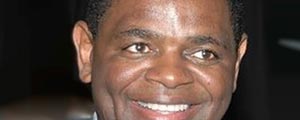
Alex Bell, in an article published by SW Radio Africa on June 7, 2013 entitled Inexplicit dual citizenship laws, observed incorrectly that: “The new constitution’s lack of clarity in terms of dual citizenship laws has created serious confusion among Zimbabweans, with the charter failing to explicitly state what the law is.”
Mutumwa on Tuesday with Mutumwa Mawere
It is common cause that part of Zimbabwe’s brain trust or human capital is now located in foreign countries.
As a result, dual citizenship is now a reality and the crafters of the new constitution were alive to the issue to allow them to put in place a new constitutional dispensation that explicitly allows dual or multiple citizenships for citizens by birth.
There is no doubt that Zimbabweans by birth who are holders of the citizenship of foreign States have been closely following with interest the implications of the new constitutional dispensation on their status.
Having taken the lead, my story goes a long way towards exposing the fact that notwithstanding the operation of the new Constitution, the Zimbabwean bureaucracy’s worldview of dual citizenship will take a long time to change, perhaps reflecting a general view that the choice to acquire the citizenship of a foreign state represents an irrevocable preference.
The mischievous characterization of my attempt to confirm the true meaning of the new dispensation by seeking to be issued with a Zimbabwean identity document on account of the fact that my relationship to the country in respect of my birth has not, and will not change as a part of an enterprise to restore some lost right is unfortunate.
The question that naturally flows from this is whether a birth right can be revoked let alone renounced.
- Chamisa under fire over US$120K donation
- Mavhunga puts DeMbare into Chibuku quarterfinals
- Pension funds bet on Cabora Bassa oilfields
- Councils defy govt fire tender directive
Keep Reading
Furthermore, the question that must also occupy any rational mind is the precise legal relationship between the State of Zimbabwe and citizens by birth as now defined in the new constitution.
If birth gives a person an automatic right to the citizenship of Zimbabwe, then should the exercise of such a right be a subject of bureaucratic interpretation?
In a genuine attempt to clarify my current citizenship status, I have chosen to pursue this matter to its logical conclusion so that this important aspect of any constitution may find closure.
On May 22, 2004, an application for my extradition from South Africa was made by some actors in Zimbabwe; on allegations that I had externalised Zimbabwean funds.
At the material time, I was described as a “fugitive” implying that I was considered then as a Zimbabwean notwithstanding that in reality I had already acquired South African citizenship two years earlier.
Some have sought to describe my decision to acquire the citizenship of South Africa as linked to the externalisation charges when in truth and fact the two were never connected.
Time always has a way of correcting false impressions and in just less than 10 years, who could ever have imagined that I would be described as a foreigner.
A foreigner by nature and construction is incapable of externalising anything from a country in which access to citizenship let alone residency can be a subject of application.
I should like to believe that there are many persons who fall into the class that I now belong to who would rather keep their status a private matter.
I was pleasantly surprised on Friday, June 7, 2013 to learn from my attorneys in Zimbabwe that the Registrar-General Tobaiwa Mudede had responded to their letter of May 29, 2013.
This is indeed commendable as I believe that the clarification of the issues inherent in the matter is of national importance and significance.
In responding to the letter, I am confident that Mudede genuinely believes in the justice of the cause that he has been pursuing for the last 33 years.
In the first paragraph, he advises that he did not refuse to restore my Zimbabwean citizenship.
By carefully choosing the word “restore”, Mudede sought to make a point that I should know that the new constitution has no effect on my citizenship status.
He then confirms what he told me personally that there are procedures to follow to enable a person like me to restore the citizenship that is deemed to have been lost.
Contrary to the views expressed by Mudede in terms of Section 43, a Zimbabwean by birth is exempted from restoring his citizenship as it is clear that such a right cannot be revoked or lost as was the case in the old constitution.
So when Mudede makes reference to the need to restore my citizenship, he clearly relies on the old constitution and laws suggesting that the new constitution has yet to be implemented.
It is obvious that Mudede is now fixed with knowledge about my personal affairs and there is no doubt that he is keeping his official busy to track all my movements and declarations at border control points.
Mudede would be well aware that in terms of the old Immigration laws, a Zimbabwean citizen who acquires the citizenship of a foreign state was not required as he erroneously states to renounce his Zimbabwean citizenship.
On the contrary, the correct term is that I forefeited my right to Zimbabwean citizenship by the operation of the law of Zimbabwe. The suggestion that I renounced my Zimbabwean citizenship in favour of South African citizenship exposes the mischief in the handling of this matter.
Mudede will also be aware that renouncing Zimbabwean citizenship prior to acquiring South African citizenship would have had the effect of rendering me stateless.
Mudede knows that renounciation has its own procedures and no Zimbabwean by birth was and is expected to renounce citizenship in favour of another.
However, he is just trying to make an irrelevant point that the choice of acquiring the citizenship by registration from another country represents a choice against one’s country of birth when the two have nothing to do with each other.
With respect to residency status, Mudede then proposes that should I wish to establish my Zimbabwean citizenship, I now have the obligation to do this through the Zimbabwe Immigration Office.
In terms of Section 44(e) of the constitution, Parliament has the power only to prohibit dual citizenship in respect of citizens by descent or registration. This means that even Mudede has no power to prohibit dual citizenship in respect of citizens by birth.
In the circumstances, Mudede fails to provide any authority that gives him the power to assert as true and fact that a citizen by birth is required to restore citizenship by first resuming residence status in the country in which Section 36(1)(a) of the constitution clearly confers unqualified rights to citizenship.
It would appear from the above stated construction that citizenship by birth is not automatic and more significantly that persons who are citizens by birth now have to pass another hurdle of residency prior to enjoying the rights of citizenship.
If Mudede had responded referring to the deeming provisions of the constitution one would have understood the seriousness with which a bureaucrat like himself should take this matter at this defining juncture in Zimbabwe’s development.
The promise that independence offered has been largely betrayed by the actions and choices of state actors such as Mudede. The shallowness of the response is obvious but what is not apparent is whether Mudede believes his own words.
The unwillingness of Mudede to lean forward is exposed by his response.
It is for this reason that the Constitutional Court must intervene by providing a clear interpretation to the pedestrian attempt to say that the crafters of the new constitution in respect of Chapter 3 that deals with citizenship were misguided by deliberately taking the power from Parliament and by deduction from the Executive to prohibit dual citizenship for citizens by birth.
Mudede makes the point that I must first obtain residency status in my country of birth. There is no better analogy than a daughter who chooses to marry and acquire the identity of the husband by changing her surname.
When such a person decided to divorce, for instance, according to Mudede the person would be required to first apply to restore the maiden name and more significantly qualify to a member of the family through residency.
Mudede seems to live in his own world.
I told him that in terms of South African laws, no person is allowed to renounce citizenship without first obtaining another one lest the person would be rendered stateless.
After 33 years in the same office, he must know that there is no requirement for renounciation of South African citizenship.
If my memory serves me right, Mudede made a preposterous suggestion that I should surrender my South African passport to him.
A passport is the property of the holder and can only be surrendered to the issuer.
Mudede for reasons best known to him chose not to copy his response to the distribution list contained in the demand letter from my lawyers.
This can only be deliberate as no rational person would want to be exposed.
The question that Mudede seems reluctant to answer is whether the new constitution permits Zimbabweans by birth.











